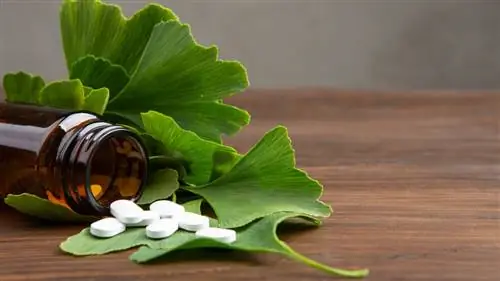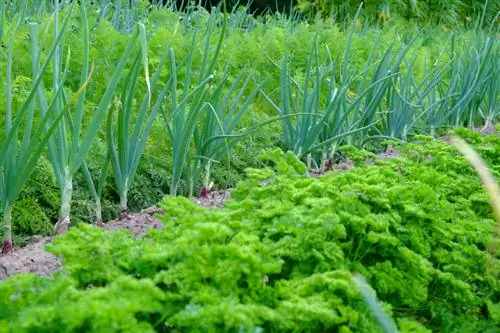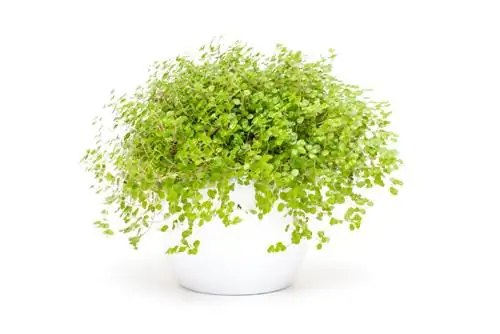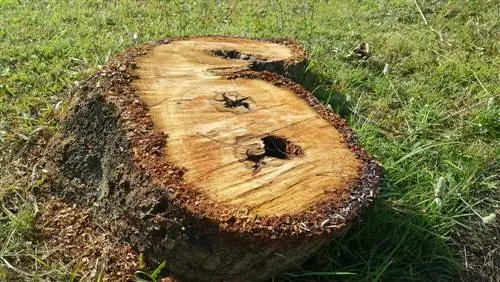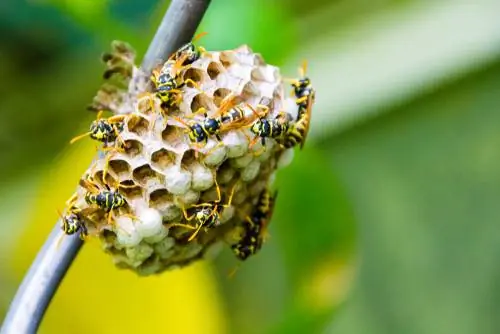- Author admin [email protected].
- Public 2023-12-16 16:46.
- Last modified 2025-01-23 11:22.
For many thousands of years, preparations made primarily from the leaves of the ginkgo tree have been used in traditional Chinese medicine and, in modern times, in naturopathy. Ginkgo biloba is also said to have an invigorating effect on the hair and, for example, counteract hair loss.
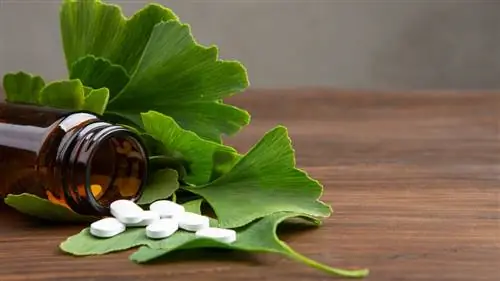
What effect does ginkgo have on the hair?
Ginkgo biloba has a positive effect on the hair through its secondary plant substances, such as flavonoids and ginkgolides, by stimulating blood circulation in the scalp, dilating the blood vessels and improving the hair supply with oxygen and nutrients. This can prevent hair loss and support hair growth.
How does taking ginkgo affect hair?
The invigorating effect of ginkgo on skin and hair is attributed to secondary plant substances, which are mainly found in the leathery leaves. These include, among other things
- various flavonoids
- Ginkgolide
- tannins
- essential oils
Using ginkgo - for example as an extract, dietary supplement or shampoo - for hair stimulates blood circulation in the scalp. Ginkgo dilates the blood vessels and thins the blood so that, according to the manufacturer's information, the hair is better supplied with oxygen and nutrients and thus strengthened. In addition, hair-strengthening preparations based on ginkgo are intended to counteract hair loss.
How is ginkgo used for hair problems?
In order for ginkgo products to have their effect on your hair, you must use them according to the instructions provided by the respective manufacturer. Please read the package leaflet carefully, as application varies greatly depending on the product.
Depending on the dosage form, ginkgo is used internally (e.g. as a dietary supplement (€99.00 on Amazon)) or externally (e.g. as an extract, tincture or shampoo). Be sure to follow the manufacturer's dosage recommendations, as ginkgo - even if it is a natural product - can have severe side effects if overdosed.
How long does it take for the effect to take effect?
As with many remedies, you cannot expect an immediate effect on your hair with Ginkgo. Depending on the product and manufacturer, the first results are only visible after at least two to four weeks of regular (and recommended by the manufacturer!) use.
Ginkgo-based remedies are not magic remedies! You may not see any effect on your hair loss orthis was not completely stopped, but merely reduced. Because of their diverse effects on the body, do not take remedies on your own, but only in consultation with your doctor.
What side effects does ginkgo have?
Ginkgo not only has a positive effect on skin and hair, but can also have unpleasant side effects, depending on how it is taken and the dosage. These are caused by ginkgolic acids, which are also classified as potentially mutagenic and cell-damaging.
Possible side effects include:
- Nausea
- Vomiting
- Diarrhea
In addition, taking ginkgo preparations can trigger an allergy with corresponding symptoms. In addition, ginkgo preparations should not be used by certain groups of people. For example, use by pregnant women and nursing mothers as well as by people with a tendency to bleed orSusceptibility to strokes not recommended.
Tip
Should you dry ginkgo leaves?
Some people dry ginkgo leaves and make a tea from them, which is said to promote memory and concentration. But be careful: such homemade teas contain high levels of ginkgo acids and can cause the side effects described. Therefore, it's better to stay away from it and talk to your doctor about he althier ways to increase concentration.

